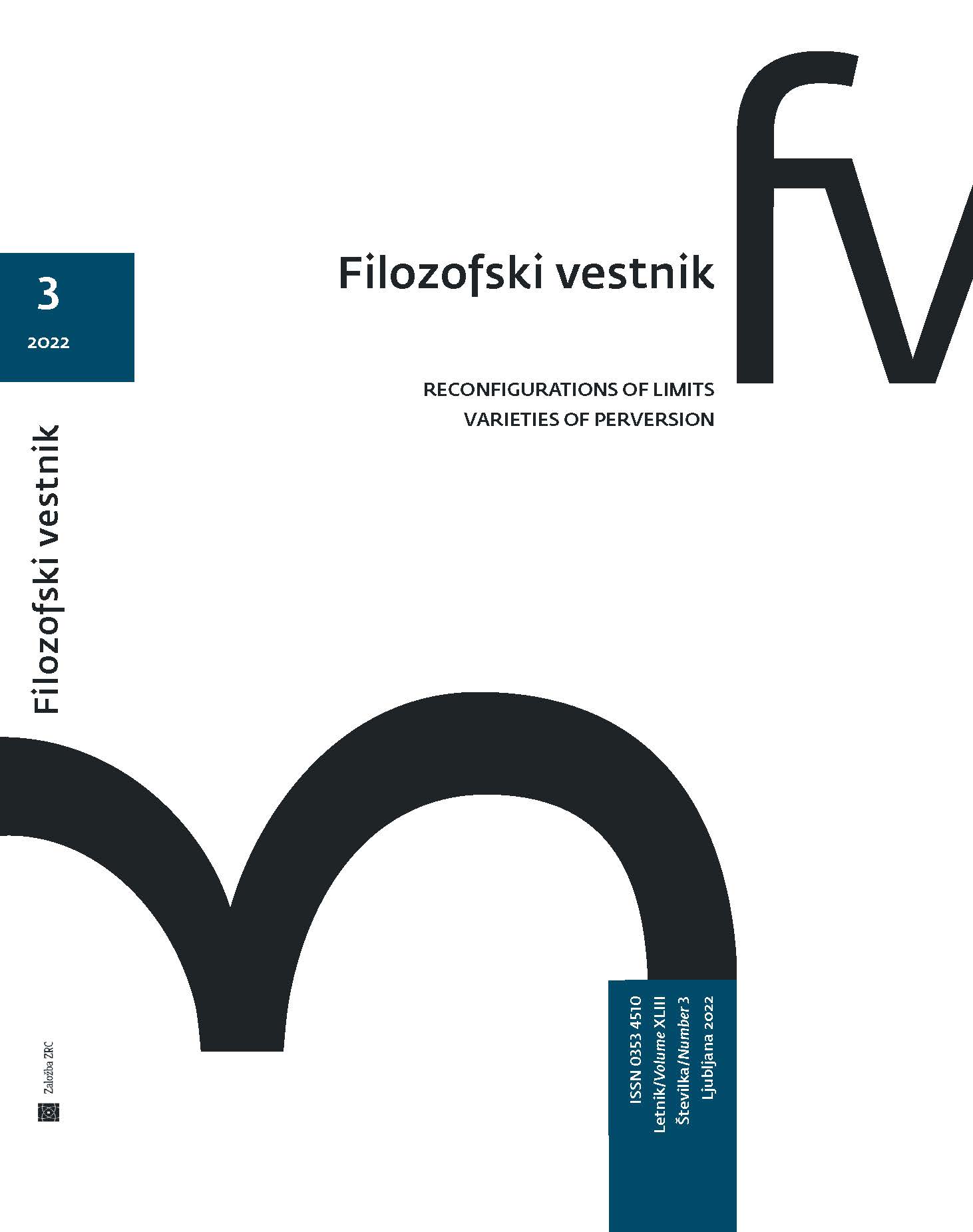Sensation(all) Ontology
DOI:
https://doi.org/10.3986/fv.43.3.07Keywords:
Lacanian know-how, extimité, ontology, repetition, curiosity, jouissance,Abstract
It is the praxis of being a subject in the world which enables psychoanalysis to theorise subjectivity. Freud theorised subjectivity from the perspective of desires, those repressed unconscious forces which conflict with the subjects’ need to live in the world. The upshot of this conflict for the subject is trauma and for psychoanalysis such trauma provides a way into a remedy, a cure, the presumption of psychoanalysis being that through its method of transference, it does indeed possess the knowledge to pursue a remedy. Lacan offers a new interpretation of Freud by considering the subject as an ongoing ontological enigma in so far as subjective unconscious desire is not only (potentially) traumatic but necessarily (always) linguistic. How is this an ontological enigma? For Lacan the subject is first and foremost a speaking being engaged in an ongoing struggle to articulate unconscious desire. This is because, claims Lacan, we are born into language which not only pre-exists us but continues after death. In this way subjectivity is inescapably oriented to language as simultaneously intrinsic external to it. The unconscious is therefore a mixture of inside and outside, an enigmatic (pre)ontological space which Lacan calls extimacy. This essay seeks to explore Lacan’s orientation of the subject towards extimacy as the site of subjective conflict where, in its quest for the subject’s desire to know and handle the symptom, transference engages a new ontological dimension in which we can say that the extimate is structured like a sensation.
Downloads
References
Brecht, Bertolt, “Über den Selbstmord”, The Brecht-Eisler Song Book, Michigan, Oak Publications, 1967.
Faye, Esther, “The Real of the Drive”, Analysis, (2014), pp. 1–10.
Freud, Sigmund, Three Essays on the Theory of Sexuality, trans. J. Strachey, London, Imago, 1949.
Freud, Sigmund, “Remembering, Repeating and Working Through”, in Further Recommendations in the Technique of Psychoanalysis II, trans. Joan Riviere, New York, Basic Books, 1914.
Grigg, Russell, “Beyond the Oedipus Complex”, in J. Clemens and R. Grigg (eds.), Jacques Lacan and the Other Side of Psychoanalysis: Reflections on Seminar XVII, Durham & London, Duke University Press, 2006.
Johnston, Adrian, “The Forced Choice of Enjoyment: Jouissance between Expectation and Actualization”, The Symptom, 2 (2002). Available at https://www.lacan.com/forcedf.htm.
Lacan, Jacques, Seminar VII. The Ethics of Psychoanalysis, trans. D. Porter, London, Routledge, 1992.
Lacan, Jacques, Seminar XX. Encore: On Feminine Sexuality, the Limits of Love and Knowledge, trans. B. Fink, New York, Norton, 1999.
Lacan, Jacques, Seminar XXVI. Topology and Time, 1978–1979, trans. D. Collins, Unpublished manuscript.
Lacan, Jacques, …Ou pire. Scilicet, Paris, Seuil, 1979.
Lacan, Jacques, The Seminar of Jacques Lacan, Seminar XI, The Four Fundamental Concepts of Psychoanalysis, trans. A. Sheridan, New York, Norton, 1981.
Lacan, Jacques, Écrits. The First Complete Edition in English, trans. B. Fink, New York, London, W.W. Norton, 2006.
Miller, Jacques-Alain, “Extimity”, The Symptom, 9, (2008). Available at https://www.lacan.com/symptom/extimity.html.
Pavón-Cuéllar David. “Extimacy”, in T. Teo (ed.), Encyclopedia of Critical Psychology, Springer, New York, NY, 2014. Available at https://www.academia.edu/4374516/Extimacy.
Porcheret, Bernard, “The Bodily Roots of Symptoms”, Psychoanalysis/Lacan, Lacan Circle of Melbourne, 2022, unpaginated. Available at https://lacancircle.com.au/psychoanalysislacan-journal/psychoanalysislacan-volume-1/the-bodily-root-of-symptoms/.
Sadger, Isidor, Recollecting Freud, trans. A. Dundes, Madison, University of Wisconsin, 2005.
Tomšič, Samo, “The Ontological Limbo: Three Notes on Extimacy and Ex-sistence”, in N. Bou Ali and S. Singh (eds.), Extimacy: Encounters Between Psychoanalysis and Philosophy, Evanston, Northwestern University Press (Forthcoming 2023).
Verhaeghe, Paul & Declercq, Frédéric. (2002). Lacan’s Analytical Goal: “Le Sinthome” or the Feminine Way. In: L. Thurston (ed.), Essays on the Final Lacan. Re-inventing the Symptom. New York: The Other Press, pp. 59–83.
Völker, Jan. (2022). Geteiltes Denken: Marx, Freud, Kant, Hegel. Habilitationsschrift. Eingereicht am Fachbereich Philosophie und Geschichtswissenschaften der Goethe-Universität Frankfurt am Main im Fach Philosophie.
Downloads
Published
How to Cite
Issue
Section
License
Copyright (c) 2022 Authors

This work is licensed under a Creative Commons Attribution-NonCommercial-NoDerivatives 4.0 International License.
Authors guarantee that the work is their own original creation and does not infringe any statutory or common-law copyright or any proprietary right of any third party. In case of claims by third parties, authors commit their self to defend the interests of the publisher, and shall cover any potential costs.
More in: Submission chapter





